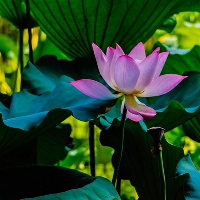1. Rinse and peel the lotus root, and then use a wire eraser to wipe it into fine threads. Rinse and peel the lotus root, and then use a wire eraser to wipe it into fine threads. 2. Pour ginger powder and scallions into lotus root silk, add some salt, a little pepper, starch and flour, mix well, and beat it with your hands in one direction to form a fine and even lotus root mud. 3. Gently knead the lotus root mud and rub it into one
Expand Details









